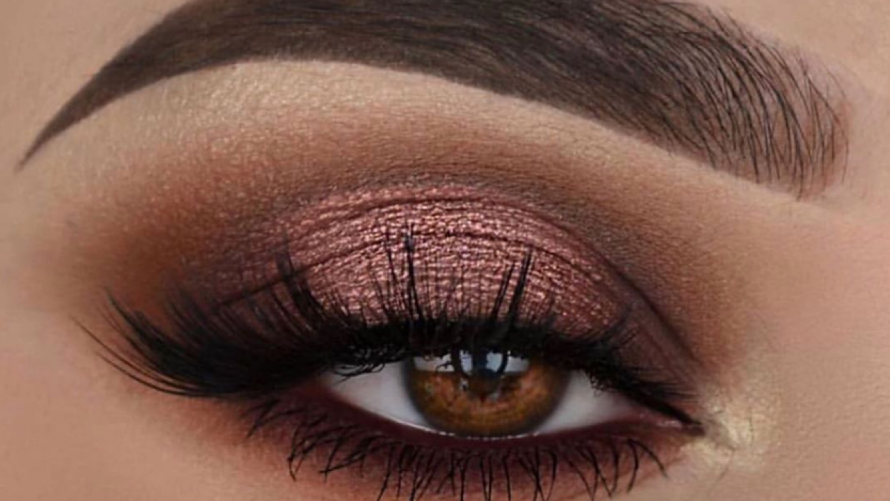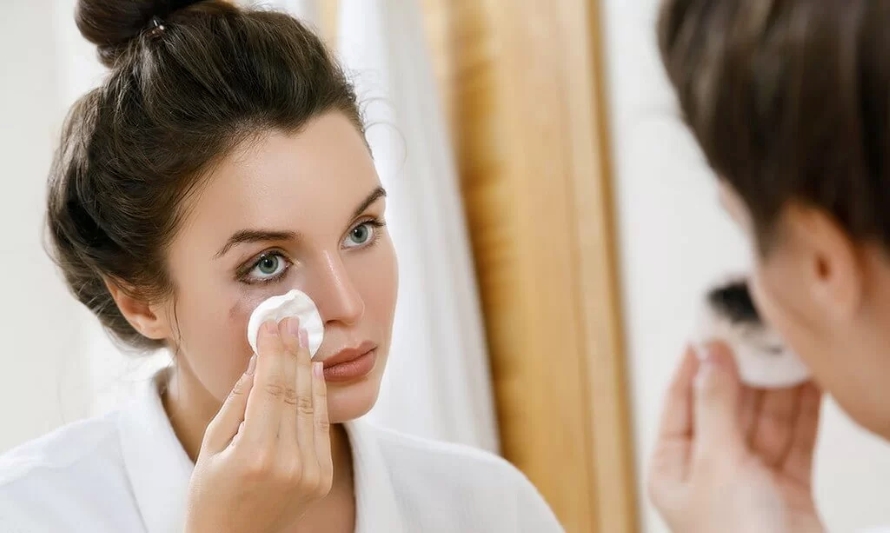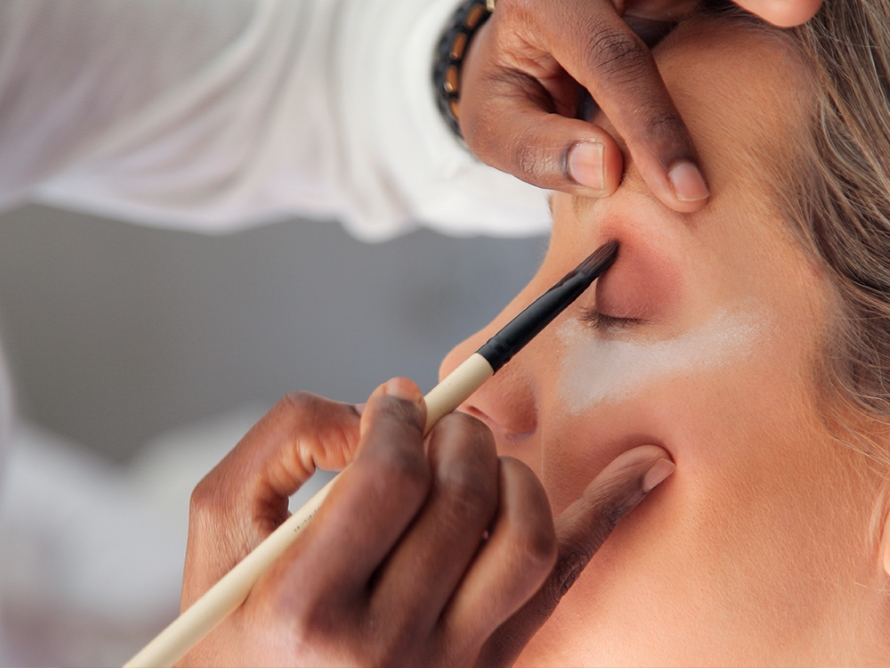Health & Beauty
Gentle Glamour: Effective Makeup Strategies for Sensitive Eyes
If you frequently experience itchy, watery or irritated eyes after applying makeup or skin care products, chances are you’re suffering from sensitivities. Having to deal with this can be extremely frustrating, especially when all you want is to look and feel your best.
While completely avoiding makeup is one choice, there are alternative ways to alleviate discomfort by implementing several effective strategies tailored for sensitive eyes. Thanks to constant advancements in the beauty industry, there are now options that allow you to express your personality through makeup without sacrificing your well-being. Read on to discover the best tips on how you can achieve a gentle, yet glamorous eye look, ensuring you shine with confidence.
Use Hypoallergenic Eyeshadow

Using this kind of product can significantly benefit those with sensitive eyes. These specially formulated products are designed to minimise the risk of irritation, redness, or allergic reactions commonly experienced by individuals with sensitive skin or eyes. Hypoallergenic eyeshadows are created without common allergens or harsh chemicals that could trigger sensitivity.
They often exclude ingredients like fragrances, parabens, sulphates, and other potential irritants. Instead, they incorporate gentle and skin-friendly components, such as minerals, natural pigments, or botanical extracts, reducing the likelihood of adverse reactions.
Whether you’re going for a natural look or aiming for a dramatic statement, opting for a highly pigmented hypoallergenic eyeshadow allows you to get creative, exploring a spectrum of eye makeup styles with confidence and comfort. You can experiment with different shades and textures, from matte to shimmer, and play with blending techniques to craft various eye looks. Remember to always patch-test new products, especially bold colours or new formulations, to ensure they suit your eye sensitivities.
Moreover, hypoallergenic eyeshadows often come in a variety of formulations, including powder, cream, or mineral-based options, catering to different preferences and needs. Powders are generally easier to blend and can be less irritating due to their lighter texture. Cream eyeshadows offer more intensity and can be easier to apply but may have a shorter shelf life due to their creamy consistency.
When shopping for eye shadows, look for those labelled as hypoallergenic, ophthalmologist-tested, or suitable for sensitive eyes. These labels indicate that the product has undergone rigorous testing and is less likely to cause irritation or allergies.
Application techniques also play a role in minimising potential irritation. Use clean, soft brushes to apply the eyeshadow gently to the eyelids, avoiding excessive rubbing or pulling on the delicate skin around the eyes. Start with a small amount of product and gradually build up colour if needed, allowing for better control and reducing the risk of irritation.
Be Careful with Eyeliner
When dealing with eye sensitivities, choosing the right eyeliner is vital. Opt for soft, hypoallergenic eyeliners free of harsh chemicals or fragrances to avoid irritation. Apply the liner gently along the lash line, avoiding the waterline to prevent potential discomfort. Consider gel or pencil liners over liquid ones for their smoother application without tugging.
Always sharpen pencil liners to ensure cleanliness and reduce the risk of bacterial buildup. If you experience any discomfort, stop using the product right away and seek advice from a dermatologist. Remember to prioritise gentle formulations and mindful application to safeguard your eyes’ comfort and health, ensuring a glamorous look without compromising on care.
Patch Test New Products
Patch testing new products is crucial for individuals, especially those with sensitive skin or allergies. Apply a small amount of the product, like mascara or eyeshadow, to a discrete area on the skin near the eye, such as the area just behind the ear or on the side of the temple. Ensure it’s a small, inconspicuous spot that’s close enough to the eye area to gauge any potential reactions but not in direct contact with the eyes.
After waiting for 24 hours, observe for any signs of redness, irritation, swelling, or itching. If no adverse reactions occur during this period, it’s generally safe to proceed with using the product. This simple test helps prevent potential allergic reactions or skin irritations, ensuring a safer and more comfortable experience when incorporating new skincare or makeup items.
Avoid Irritating Ingredients
Another effective strategy when dealing with eye sensitivities is to avoid irritating ingredients. Fragrances and similar additives commonly found in makeup products can trigger irritation, redness, or allergic reactions. Opt for fragrance-free, hypoallergenic makeup items formulated specifically for sensitive eyes.
Check product labels for harmful substances such as alcohol, sulphates, and parabens, which may exacerbate eye sensitivity. Prioritise gentle, natural makeup products with ingredients like chamomile or aloe vera known for their soothing properties. By steering clear of these potentially irritating components, you can minimise the risk of discomfort or adverse reactions, ensuring a more comfortable experience with eye makeup.
Keep Brushes and Applicators Clean
Maintaining clean makeup brushes and applicators is essential for individuals with irritable eyes. Dirty tools can harbour bacteria, allergens, and residual makeup, leading to eye infections or irritations. That said, it’s important to regularly cleanse your brushes using a gentle, hypoallergenic brush cleaner or mild soap to remove buildup and potential allergens. Ensure they are completely dry before use to prevent moisture-related issues. Additionally, replace old or frayed applicators that might scratch or irritate the eyes.
Discard Expired Products
Discarding expired products holds exceptional importance when dealing with sensitive eyes. Expired makeup harbours bacteria, losing efficacy and potentially causing eye infections or irritations. Regularly check product labels for expiration dates, usually ranging from 3 to 24 months after opening. Mascara typically lasts 3-6 months, eyeliners and eyeshadows around 6-12 months, and creams approximately 6-12 months post-opening. Dispose of any products surpassing their shelf life, regardless of use frequency. Additionally, inspect for changes in texture, colour, or odour as indicators of expiration.
Always Remove Makeup Before Bed

Removing makeup before bed is an essential routine that ensures proper skin and eye health. But when doing so, it’s crucial to use a gentle makeup remover and cleanser suitable for sensitive eyes. This ensures the elimination of makeup, dirt, and impurities without irritating the area.
Also, avoid harsh rubbing or tugging on the delicate eye area. Choose fragrance-free, oil-free, and ophthalmologist-tested removers to prevent potential reactions. Gently cleanse the eye area, ensuring all traces of makeup are removed. Sleeping with makeup can clog pores, leading to eye irritation or infections. By diligently removing makeup before bed with mild products, you maintain eye hygiene, allowing your eyes to rest and preventing potential discomfort or adverse reactions overnight.
Consult a Professional
Seeking help from a dermatologist or allergist is essential if you have sensitive eyes. Even after using gentle products, if your eyes still feel uncomfortable, these experts can figure out the cause. They’ll offer advice, recommend better products, and run tests to find what triggers sensitivity. If your eyes stay sore, red, or itchy, it’s a wise decision to see them. They’re pros in this area for a reason and can find ways to make your eyes feel better, letting you enjoy daily life without irritation. Consulting them gives valuable insights for managing sensitive eyes, ensuring a more comfortable experience.












